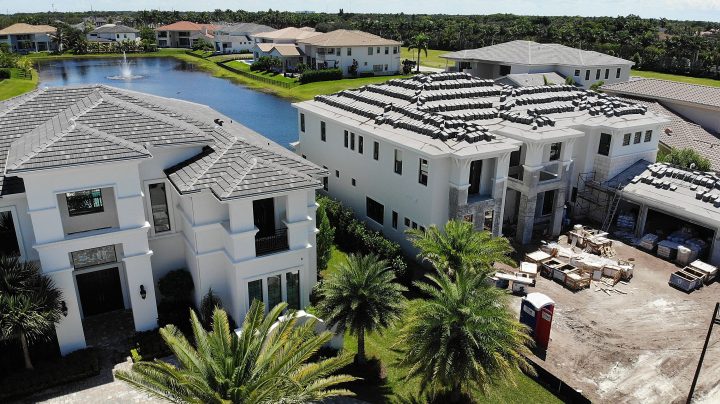
New house construction is booming. Here’s why most of it isn’t affordable.
New house construction is booming. Here’s why most of it isn’t affordable.

There are more new homes being built in this country right now than there have been in a while.
Housing starts grew by more than 21% from April to May, according to the U.S. Census Bureau. And they’re up almost 6% over this time last year. The number of new homes that were just completed also jumped last month.
Given how few existing homes are for sale these days, all this new construction should eventually help with the affordability problem — at least in theory, right? More supply to meet demand. But much of what’s being built these days is more high-end housing, including larger homes and luxury apartments.
Building a new house has never been more expensive. At least that’s how it seems to Clint Mitchell, who owns a building company in Indianapolis.
“First, it was land prices, and then post-COVID, there’s been inflation of all kinds of materials and labor to build a house,” he said.
Add in high mortgage rates, and a home that might’ve been within reach for a first-time buyer a year or two ago just isn’t anymore.
“And so, builders have looked to who’s out there in the market and able to buy,” Mitchell said.
That’s mostly people who have more money and want a higher-end house, he said. So that’s what he and most builders have been building. To some degree, that’s always been the case, said Jenny Schuetz at the Brookings Institution.
“New construction has always been more expensive than older, existing homes,” she said, and historically, “as high-income households move into new construction, the units that they move out of filter down on the income spectrum.”
But in the last decade or so, that hasn’t been happening as much. New construction slowed way down during the Great Recession and still hasn’t caught up.
And “because there isn’t enough of the new supply, older units aren’t coming down in price and filtering to lower-income households as quickly as they used to,” Schuetz said.
So everything’s just more expensive. In some cases, builders are building smaller homes that they initially intend to sell for less, said Ali Wolf, chief economist at the housing data and consultancy firm Zonda.
“But then when they bring them to the market, the buyer pool is so deep that the builder is raising prices to try to match the level of demand,” she said.
A lot of local governments also have strict zoning laws and regulatory barriers that make it hard for developers to build, especially lower-cost, high-density housing, according to Chris Herbert, managing director at the Joint Center for Housing Studies at Harvard University.
“If we have more communities that allow for more multifamily housing, more townhouses, more small single-family houses on small lots, then I think we will see more of that housing get built,” he said.
And that, Herbert said, could make a real difference when it comes to affordability.
There’s a lot happening in the world. Through it all, Marketplace is here for you.
You rely on Marketplace to break down the world’s events and tell you how it affects you in a fact-based, approachable way. We rely on your financial support to keep making that possible.
Your donation today powers the independent journalism that you rely on. For just $5/month, you can help sustain Marketplace so we can keep reporting on the things that matter to you.











